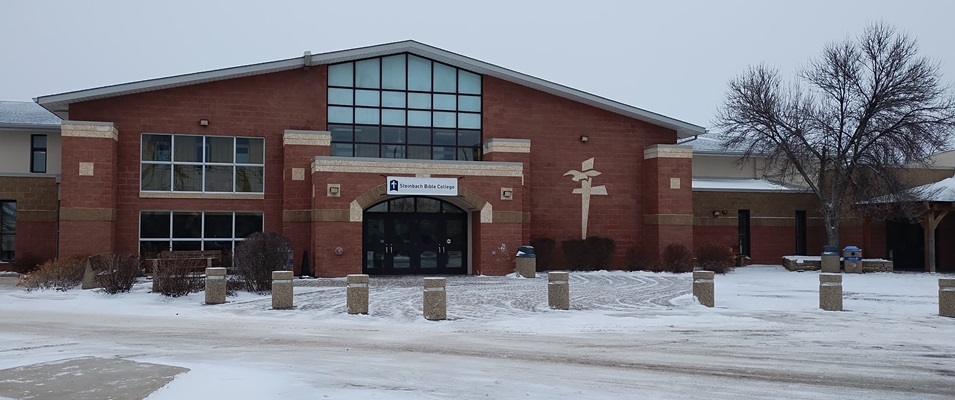
In recent months, Niverville’s community Facebook pages have been abuzz with stories of property theft and damage in and around town. Some argue that Niverville needs a stronger police presence while others suggest that community members need to get more involved with crime prevention. From the town council’s perspective, policing is going to become a very important issue in the next few years.
According to the Police Services Act of Manitoba, once a town reaches a population of 5,000 people, the level of policing must increase. After the release of the 2011 census, Niverville’s population was 3,540 people. Town officials estimate that the current population is just shy of the 5,000 mark.
“The next census comes out in 2016,” says Niverville Mayor Myron Dyck, “and if it’s found that our population is over 5,000, it’s going to tip the threshold and we’re going to have to find monies for additional policing, monies that will be taken from other areas.”
When it comes to the type of policing a community can choose from, there are 4 options available. The Police Services Act states that an urban area (which can be a town, village, or city) may establish their own police service, contract the services of the RCMP, operate a joint regional police service with other communities, or contract another community’s police services.
Niverville currently contracts the St-Pierre-Jolys RCMP detachment to provide policing to the town at the cost of around $220,000 annually. According to the mayor, when the population reaches 5,000 and services are required to increase, the cost to use the RCMP’s policing services will increase to between $750,000 and $1 million per year.
“We currently share the St-Pierre detachment with this greater area and they go to calls based on priority,” Dyck explains. “There are other communities that have more priorities more often than Niverville.”
The Town of Niverville had an RCMP member working from the public service building, but because it was a part-time position the mayor admits it has been difficult to keep the position filled.
“We’ve been talking to RCMP Staff Sergeant Poirier and they are having a similar issue staffing someone part-time in Lorette. We’re hoping to hire a full-time person who can spend half of the time in Niverville and half of the time in Lorette,” Dyck says.
While having a part-time RCMP member working in town will help provide a police presence in the community, it also allows residents to do criminal record checks and to report incidents locally rather than having to travel to other communities.
In the past, Niverville has also entertained the idea of setting up its own local independent police department but, according to Dyck, the cost has always been a concern. While bigger centres like Morden and Winkler have their own independent police departments, they also receive more taxes because they have larger business sectors.
“While Niverville has population, we need business development in the community to give us more sustainable monies coming in for the needs we do have,” Dyck says.
A Look at Independent Policing in Manitoba
Marc Robichaud has been the police chief of the Ste. Anne Police Department for 7 years and has 24 years of experience in policing and security management. The Ste. Anne Police Department is an independent police service which consists of 4 constables and 20 auxiliary members who volunteer their time. The department operates under the general direction and supervision of a police board and is funded through tax dollars, grants, and enforcement revenue. There are about 1,600 residents in Ste. Anne.
“Because we’re an independent police service, we receive a grant from the province of Manitoba,” Robichaud explains. “It’s a per capita grant for protective services and, based on the size of this community, the grant is about $200,000 a year. We also receive revenue from the enforcement we do and anything outside of that is the responsibility of taxpayers.”
Last year, the Ste. Anne Police Department expenses totaled $460,000. Once the amount of money received through grants and enforcement revenue was deducted, the total amount to taxpayers was $203,000. Based on information in their budget, the town of Ste. Anne only pays the RCMP $300 a year for additional support.
According to Robichaud, there is always an officer on duty and usually a volunteer, and there is a brief period overnight when officers are on-call. He says that their average response time to a call is about 4 minutes and, when it comes to vehicle thefts and property damage, that’s not a common occurrence in their town.
“That just doesn’t happen here,” Robichaud says. “People know that our members are out patrolling and that’s a deterrent for most people.”
The members of the Ste. Anne Police Department are trained through accredited police programs like the one offered by the Winnipeg Police Service, and the auxiliary members are trained by the local officers.
Robichaud emphasizes the importance of the relationship they have with the RCMP. They work collaboratively on a number of fronts and that makes for a good balance in the town’s policing strategy.
“From a day-to-day perspective, we’re able to deal with 99 percent of everything that comes up,” Robichaud says, “but we couldn’t do what we do here without the RCMP. If something big happened like a murder, we wouldn’t have the resources to deal with that.”
There are, however, a number of challenges when running an independent police department. Two of the biggest hurdles are limited budgets and the ability to retain employees.
“The RCMP pay their people well and are able to retain them. We don’t pay anywhere near what the RCMP pay their employees so we don’t keep people as long,” Robichaud explains.
Like the RCMP, the Ste. Anne Police Department is also very involved in outreach programs. “We’re in the schools every day. We run the D.A.R.E. (Drug Abuse Resistance Education). We’ve had noon hour basketball games. We try to be a positive presence in the community.”
In Niverville, there won’t be any changes to policing in the immediate future. In the meantime, Mayor Dyck says the community needs to work together to help avoid some of these crimes that have become too commonplace. He suggests people lock the doors to their homes and vehicles and avoid leaving valuables visible in vehicles and on their properties. He also suggests residents contact the Niverville Crime Prevention Patrol (NCPP) to see how they can get involved (see below for contact information).
“There are things we could do on the policing side but there are also things we could do on the volunteer side. Often times, eyes on the community serve as a deterrent for a lot of these crimes,” Dyck says.
He also reminds citizens how important it is to report any crime to the RCMP.
“Instead of telling the Facebook world about these crimes, make sure you tell the RCMP,” he says. “Facebook isn’t going to make you safe but the RCMP will. It’s good to give your neighbours a heads up, but please make sure you report it.”
He adds, “I don’t like it that things are happening in the community, but in the whole scope of things, what we’re hearing from the RCMP is that compared to other communities, Niverville doesn’t have the same level of crime as other areas.”
The RCMP did not return our calls for comment.



















